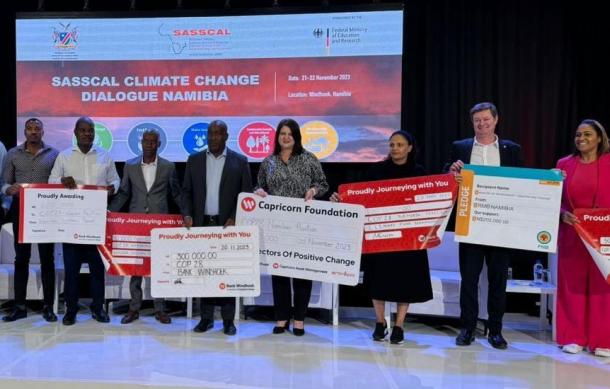
There is a need for accurate and timely climate data collection in order to address and mitigate the impacts of climate change.
Climate data integrates climate models and forecasts information on what the future will look like and how the climate will evolve depending on the path of greenhouse gas emissions.
Speaking at the Southern African Science Service Centre for Climate Change and Adaptive Land (SASSCAL) Management dialogue in Windhoek, its Executive Director says more still needs to be done in climate data collection as these data play a major role in decision-making.
"The basic data is the basis for understanding the situation on the ground; this is the basis for developing early warning systems, so how do we provide information towards decision-making in the absence of these data?" queried Dr. Jae Olwoch, the Executive Director at SASSCAL.
SASSCAL recently provided Namibia with 64 automatic weather stations, which were distributed across the country, but some are already dysfunctional.
"During the flood, we received this year, we noticed that most of these weather stations were not functioning; some of them were vandalised by the community, and as one can expect, our budget was not in a position to service them. We contacted our partners, and you know we know how to craft these letters for development partners, and I really hope they will be serviced," explains Deputy Minister for Agriculture, Water, and Land Reform, Anna Shigwedha.
She says it is important that these weather stations function as they serve as an early warning system, and the data collected from them gives Namibia directions on how to mitigate climate impacts.
The Climate Change Dialogue will deliberate on climate issues within the SASSCAL countries.
The dialogue will also reflect on the agenda of the upcoming COP28.





